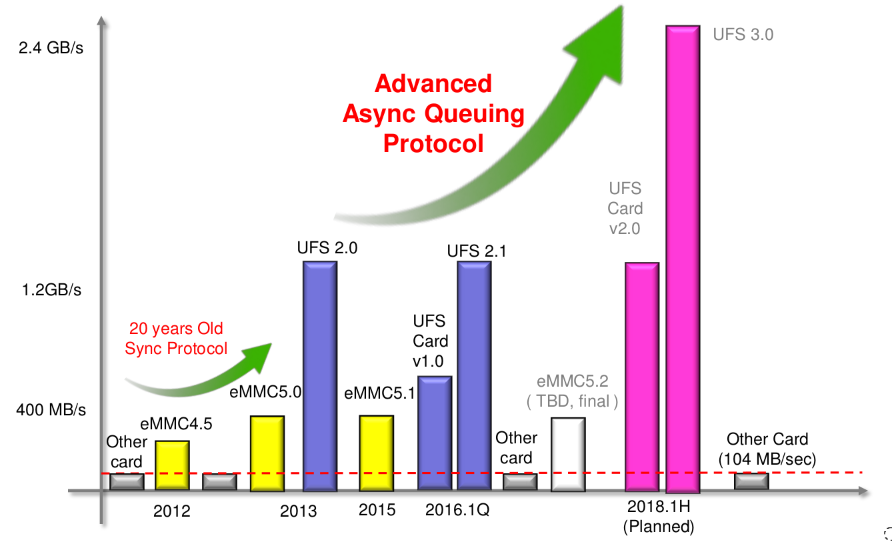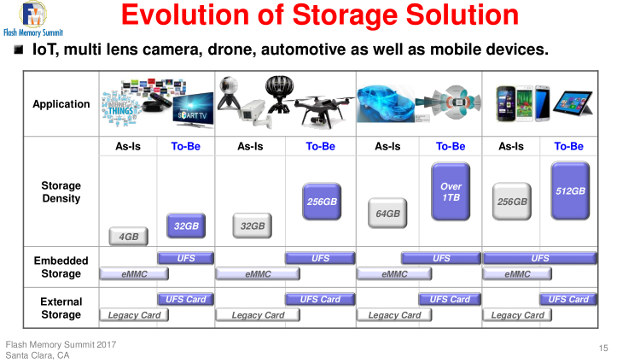All my devices still rely on eMMC flash for storage, but premium smartphones, for example, make use of UFS 2.0/UFS 2.1 flash storage with performance similar to SSD, with Samsung UFS 2.0 storage achieving up to 850MB/s read speed, 260 MB/s write speed, and 50K/30K R/W IOPS. UFS 3.0 promises to roughly double the performance of UFS 2.0/2.1 with transfer rates of up to 2.4 GB/s, and separately, the UFS Card v2.0 standard should deliver UFS 2.1 performance on removable storage.

Several Chinese and Taiwanese websites, including CTimes and Benchlife, have reported that companies have started getting UFS 3.0 & UFS Card v2.0 licenses from JEDEC, and Phison is working on a controller to support both new standards, and scheduled to launch in 2018.
Premium smartphone SoC are only expect to support UFS 3.0 in 2019 and beyond, and hopefully by that time eMMC will have been replaced by UFS 2.0/2.1 in entry level and mid range devices. The outlook for UFS cards is less clear, as I’ve yet to see a product equipped with a UFS slot.

Based on a recent presentation at the Flash Memory Summit, (typical) embedded storage capacity will also increase to 32GB for IoT / multimedia applications, 256GB for smart home products and drones, 512GB for mobile devices, and over 1TB for automotive applications.
Via Liliputing

Jean-Luc started CNX Software in 2010 as a part-time endeavor, before quitting his job as a software engineering manager, and starting to write daily news, and reviews full time later in 2011.
Support CNX Software! Donate via cryptocurrencies, become a Patron on Patreon, or purchase goods on Amazon or Aliexpress





That’s a great news. But we are still far from the affordable development boards with UFS storage. Infact smartphones doesn’t need UFS storage but the development boards do. That’s my opinion.
@Manohar
Yeah we’re not going to see this on devel boards until it’s more common in cell phones, STB, etc. The chip makes have to make the chips for their main customers before we’ll ever see them repurposed for dev boards.
I wouldn’t hold my breath.
@Manohar
I recall tests were UFS provided significant boost in application load & usage times. Huawei P10 had two variants, eMMC and UFS based.